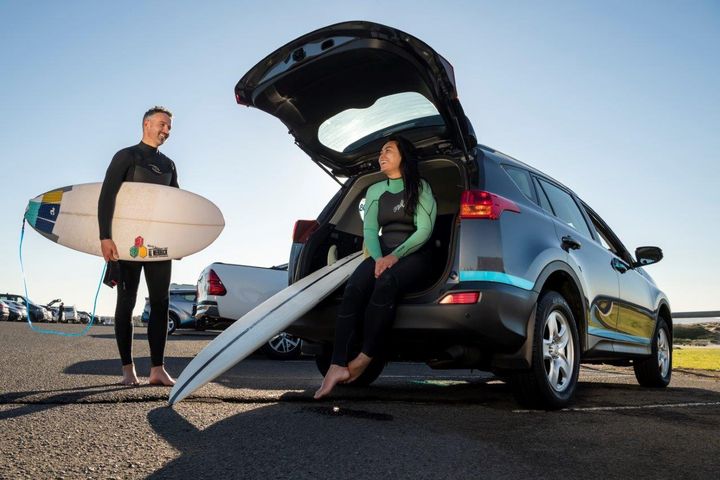
Popcar is banking on the fact that interest is also growing in Australia to do more for environmental and climate change as well as to maintain a healthier lifestyle by foregoing the car more often and getting around on foot or by bicycle.
Photo via Popcar.
Australia’s big cities are increasingly relying on carsharing — and the number of users is rising nationwide, according to shared mobility provider MOQO.
Popcar, one of the Australian providers on the continent’s shared mobility market since 2016, is increasing its focus on user comfort and service by partnering with MOQO. Developed by the company Digital Mobility Solutions GmbH in Aachen, Germany, MOQO is being used by growing numbers of shared mobility providers worldwide.
“Australians are traditionally attached to the idea of private car ownership and the independence and privacy that comes with it,” Anthony Welsh, director of Popcar, said in a statement. “For us, two factors were decisive: With the MOQO app, we can offer people in Australia the leading solution for shared mobility. The second reason is the team behind the technology. We have tremendous confidence that they will continue to push their solution to stay at the forefront, for the mutual benefit and the convenience of our members.”
For both carsharing operators and users, the MOQO platform can digitally map all processes necessary for sharing. On the operator’s side, this includes all rental and billing processes, driver’s licence validations, services such as cleaning and recording damage or vehicle conditions, and staff deployment or accounting procedures.
After downloading the app and registering, users benefit from convenient handling and high transparency. They can see at any time where certain vehicles are available for them. They can book spontaneously or reserve in advance. They always have an overview of all services used and their costs.
Today, carsharing in the world’s sixth largest country by area (7.692 million square kilometres) with a population of only about 24.6 million takes place mainly in the capital cities. However, there is a growing appetite for the service in regional centres across the country.
“An important motivation for us was to create more competition in the market. For a long time, there was little choice in providers for those who wanted to use car sharing,” Welsh said. “Now that there is competition, people in Australia have better access to all the benefits of car sharing and customers gain from better services.”
Another important motivation for Popcar was and is making a positive sustainability impact. To offset the carbon emissions of their journeys, Popcar users can pay an offset amount. This money is then used, for example, to plant the Yarra Yarra Biodiversity Corridor.
Popcar is currently operating in Sydney within the City of Sydney, Sutherland Shire, North Sydney, Mosman, Manly and Parramatta regions; in Melbourne with Port Phillip, City of Melbourne, Darebin and Boroondara regions; in Canberra with the Canberra City, Turner, Dickson and Braddon regions; and in Byron Bay and Mullumbimby.
In 2020, Popcar had 180 vehicles, and has plans to increase that number to 300 in 2021 and 500 shortly after. As soon as there is a better charging point infrastructure in Australia, electric vehicles will also be purchased. Currently, there are already some hybrid vehicles. Popcar often works with city councils to support them in sustainable mobility policies. The support of municipalities is also important to solve the problem of scarce parking spaces.
Popcar is banking on the fact that interest is also growing in Australia to do more for environmental and climate change as well as to maintain a healthier lifestyle by foregoing the car more often and getting around on foot or by bicycle. “With carsharing, you use the car when you really need it,” Welsh added. “That means fewer cars on the roads, less congestion, less carbon emissions. It’s a good thing for everyone.”
